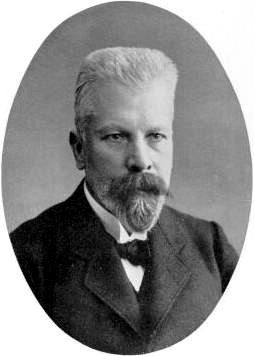History of biochemistry
History of Biochemistry
The history of biochemistry can be traced back to the ancient civilizations, where the foundation for this scientific discipline was laid through the study of biology, chemistry, and medicine. Biochemistry, as a distinct scientific discipline, has its roots in the 19th century when scientists began to systematically study the chemical processes that occur within living organisms. This article explores the key developments, figures, and milestones in the evolution of biochemistry.
Ancient Biochemistry[edit | edit source]
The earliest interest in what can now be termed biochemistry dates back to the ancient Egyptians, who practiced the art of mummification using chemical substances to preserve dead bodies. Similarly, ancient Greek philosophers, such as Aristotle, made significant contributions to the understanding of the composition of living organisms.
19th Century: The Foundation[edit | edit source]
The 19th century marked the formal beginning of biochemistry as a scientific discipline. In 1828, Friedrich Wöhler synthesized urea, demonstrating that organic compounds could be created from inorganic ones, thus bridging a gap between organic chemistry and biochemistry. This event is often cited as the birth of organic chemistry and had profound implications for biochemistry.
The Enzyme Studies[edit | edit source]
A significant advancement in biochemistry came with the study of enzymes. Scientists like Louis Pasteur contributed to the understanding that fermentation is catalyzed by substances within yeast cells, later identified as enzymes. The term "enzyme" was coined in 1878, and by the late 19th century, the role of enzymes in biochemical processes was firmly established.
20th Century: Expansion and Specialization[edit | edit source]
The 20th century witnessed an explosion of knowledge and specialization within biochemistry. The discovery of vitamins and their role in preventing diseases, the elucidation of the Krebs cycle (or citric acid cycle) by Hans Krebs, and the understanding of genetic information's chemical nature were monumental achievements. The structure of DNA was determined by James Watson and Francis Crick in 1953, marking a pivotal moment in biochemistry and genetics.
Biochemical Techniques[edit | edit source]
Advancements in biochemical techniques have played a crucial role in the development of the field. Techniques such as chromatography, X-ray crystallography, and electrophoresis have allowed for the detailed study of biomolecules, their structures, and functions.
Modern Biochemistry[edit | edit source]
Today, biochemistry is an interdisciplinary field that intersects with molecular biology, genetics, and biophysics. It plays a critical role in understanding diseases, developing pharmaceuticals, and studying the molecular basis of life. The advent of biotechnology and genomics has opened new avenues for research and application in medicine, agriculture, and environmental science.
Conclusion[edit | edit source]
The history of biochemistry is a testament to the curiosity and ingenuity of scientists who sought to understand life at its most fundamental level. From ancient practices to modern molecular biology, biochemistry has evolved into a field that is indispensable to medicine, science, and industry.
Search WikiMD
Ad.Tired of being Overweight? Try W8MD's physician weight loss program.
Semaglutide (Ozempic / Wegovy and Tirzepatide (Mounjaro / Zepbound) available.
Advertise on WikiMD
|
WikiMD's Wellness Encyclopedia |
| Let Food Be Thy Medicine Medicine Thy Food - Hippocrates |
Translate this page: - East Asian
中文,
日本,
한국어,
South Asian
हिन्दी,
தமிழ்,
తెలుగు,
Urdu,
ಕನ್ನಡ,
Southeast Asian
Indonesian,
Vietnamese,
Thai,
မြန်မာဘာသာ,
বাংলা
European
español,
Deutsch,
français,
Greek,
português do Brasil,
polski,
română,
русский,
Nederlands,
norsk,
svenska,
suomi,
Italian
Middle Eastern & African
عربى,
Turkish,
Persian,
Hebrew,
Afrikaans,
isiZulu,
Kiswahili,
Other
Bulgarian,
Hungarian,
Czech,
Swedish,
മലയാളം,
मराठी,
ਪੰਜਾਬੀ,
ગુજરાતી,
Portuguese,
Ukrainian
Medical Disclaimer: WikiMD is not a substitute for professional medical advice. The information on WikiMD is provided as an information resource only, may be incorrect, outdated or misleading, and is not to be used or relied on for any diagnostic or treatment purposes. Please consult your health care provider before making any healthcare decisions or for guidance about a specific medical condition. WikiMD expressly disclaims responsibility, and shall have no liability, for any damages, loss, injury, or liability whatsoever suffered as a result of your reliance on the information contained in this site. By visiting this site you agree to the foregoing terms and conditions, which may from time to time be changed or supplemented by WikiMD. If you do not agree to the foregoing terms and conditions, you should not enter or use this site. See full disclaimer.
Credits:Most images are courtesy of Wikimedia commons, and templates, categories Wikipedia, licensed under CC BY SA or similar.
Contributors: Prab R. Tumpati, MD



